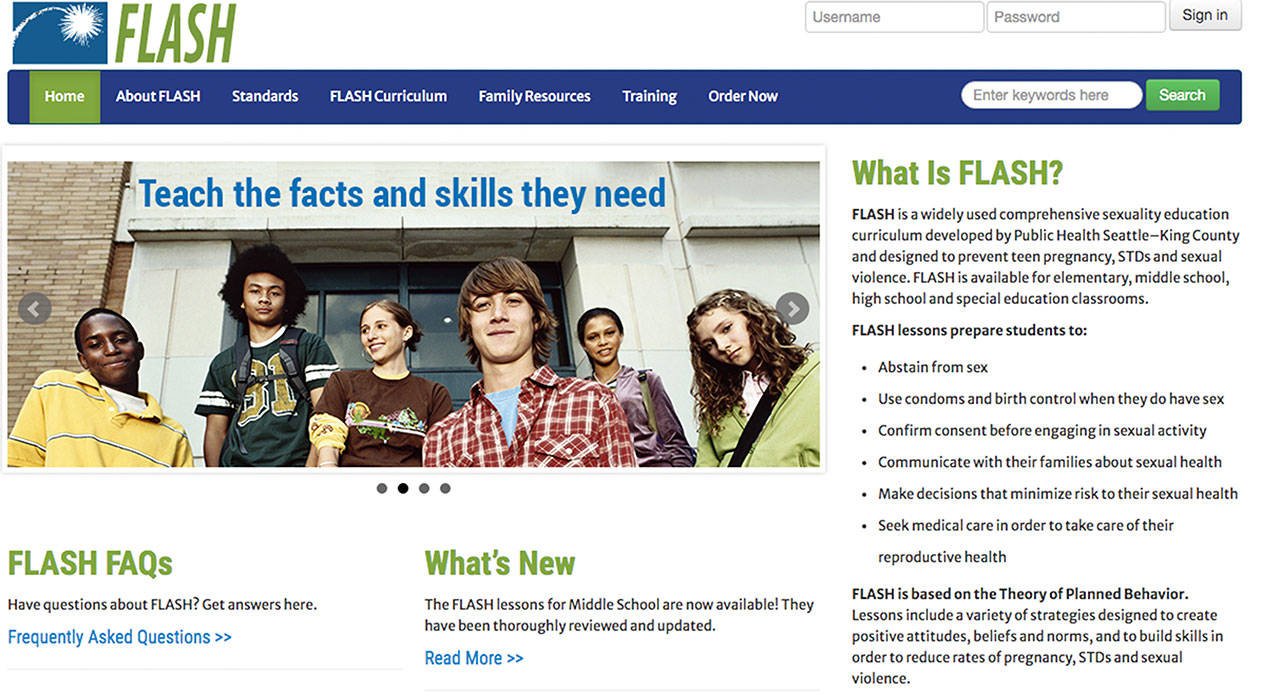The following is a press release from King County:
New published research demonstrates what King County families and public health experts have long observed – that the FLASH sexual health curriculum plays a key role in preventing unintended pregnancy among teens. The research also shows FLASH is well-liked by students.
The FLASH curriculum is widely-used and was originally developed by Public Health – Seattle & King County more than 30 years ago. It has been revised and updated to remain a cutting-edge program. All King County school districts have implemented FLASH, and teen birth rates are 2.5 times lower than the national average.
Until now, the full curriculum had never been scientifically evaluated for its effectiveness.
The results published in the February in the Journal of Adolescent Health reflect a five-year research project that was part of the federal Teen Pregnancy Prevention (TPP) program.
When the Trump Administration attempted to eliminate funding for the TPP program, King County and others sued in federal court – and won a resounding ruling that the U.S. Health and Human Services Department had acted unlawfully in cancelling the program and ordered the funding be reinstated. This allowed the research to be completed.
FLASH is based on the most recent research about how to effectively prevent teen pregnancy, sexually transmitted diseases, and sexual violence. It also includes family homework exercises to promote communication at home.
Over 1,500 young people in the Midwest and South of the United States participated in the study. Half received FLASH and half received a standard knowledge-based sex ed curriculum, in their 9th or 10th grade public school health classrooms.
Students answered questionnaires before sex ed started, and at 3 months and 12 months after it was over.
KEY FINDINGS FROM THE PUBLISHED STUDY SHOW THAT HIGH SCHOOL FLASH:
- Increased birth control and condom use among students who had not previously had sex (compared to peers who had not received FLASH).
- Increased confidence to say no to sex, compared to peers.
- Increased confidence to acquire and use condoms correctly, compared to peers.
- Improved understanding that birth control is effective and that other teens are also successfully using birth control..
Over 90 percent of young people who received FLASH said they would recommend FLASH to a friend.
“Our goal with FLASH is to improve health education in classrooms, both here locally and across the nation. Completing this research is a huge step in building an evidence base – and being able to help families, schools and of course high school students know they are getting sexual health education that is fact-based and really works,” said Public Health director Patty Hayes.
In Washington state, where all schools are now mandated to provide comprehensive sexual health education, the research will help districts by offering a proven, evidence-based choice for their communities.


